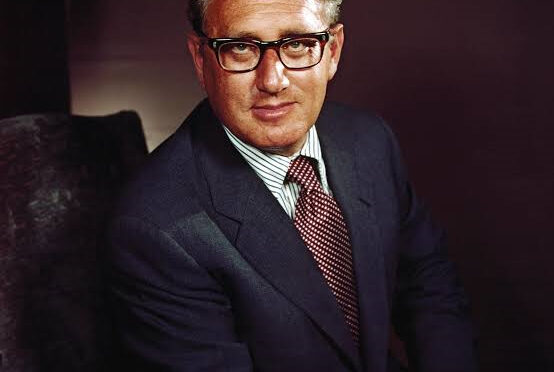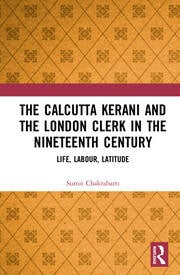In Memoriam
Posted on : December 11, 2023Author : Ayanika Das

Henry Kissinger (1923-2023)
Any personal reckoning with the complicated legacy Henry Kissinger leaves behind, largely depends on which portion of the planet one belongs to. To the millions of South Asians and South-East Asians, whose countries and economies have been forever altered in the towering aftermath of his realpolitik, it was but the end of a most uncomfortable era. However, in most gleaming Washington corridors, tributes continue to flow in about a “peerless diplomat” and “cherished national hero.” For a Nobel Peace Prize winner, Kissinger will no doubt remain enshrined in world history but unlike other winners, the rosy picture of his contributions will remain entangled with the 3-4 million official and countless unofficial, human lives, it cost to paint it. However, in a manner almost entirely too self-aware, he actually donated the prize money to charity and offered to return the medal. While grappling with Henry Kissinger, the man, remains an entirely different matter far outside the framework of this piece, grappling with his legacy does not have to be.
Born Heinz Alfred Kissinger to an affluent German-Jewish couple, he was forced to emigrate as a 15-year-old due to the Holocaust. However, he was wholly dismissive of any viewpoint that established psychoanalytical links between his experiences and his later year policies. Kissinger started his career as an academic, specializing in nuclear weapons. In this pursuit he was patronized by the then governor of New York, Nelson Rockefeller. Using this as a pedestal to boost his political career, he began serving in various government departments and ministries, ending up initially under the Joint Chief of Staff and National Security Council during President Eisenhower’s time. His next big stint was under the newly elected Nixon who won the presidency for the Republicans in 1968. Appointed National Security Adviser he gained access to the most powerful office in the world. In 1973 he became Secretary of State, a position he held till Gerald Ford’s presidency till he relinquished it to his protege, Brent Scowcroft, in 1975. Kissinger’s policies were perspicaciously pro-USA and abandoned all guise of normative judgement in diplomacy. For starters he was instrumental in the rapprochement between USA and the People’s Republic of China, culminating in Nixon’s historic 1972 visit. This phase of detente came to define American cold-war policy for the succeeding decade, for this began an alliance forged on anti-Soviet lines that fully cemented in 1979. Kissinger’s interest in China is looked on as groundbreaking for the time period and remains validated by the effervescent support he enjoys there even today. Indeed, its echoes reverberated in premier Xi Jinping condolences to President Joe Biden in tribute of a “most valued friend.”
Kissinger’s popularity diminishes as we make inroads in South East Asia, Central America, Africa and even closer home to South Asia. During his tenure as security advisor, the USA committed itself to an unprecedented ‘bombs over diplomacy’ approach in Vietnam, Cambodia and Laos. The estimated death tolls are but one aspect of the domino effect this had, for it also further enabled the counter radicalization of groups like the Khmer Rouge, plunging the region further towards genocide and dastardly economic squalor. Cambodia still reels in the aftermath of this period of its history, in what seems to be an afterthought in most of the Western world. The USA also took a hardline stance regarding the Bangladesh Liberation war, siding instead with the General Yahya Khan regime, while ignoring a telegram for help from the American Consul-General in East Pakistan, Archer Blood. Even when the subsequent telegram explicitly mentioned the word “genocide”, the White House responded by ending Blood’s tenure entirely, relocating him to a different department. This moral bankruptcy seemed to be largely in part due to India’s growing alliance with the USSR. America also found herself aligned itself with Suharto’s regime in Indonesia, responsible for the bloody massacre of thousands of East-Timorese people. While Kissinger shirked any official responsibility, the USA continued their tacit compliance with their less-than-ideal allies because it was not felt to be in American interests to intervene. The same logic saw the erection of the Pinochet government in neighbouring Chile and Jorge Vidal’s military junta in Argentina, both explicitly recognized by the USA, both responsible for thousands of senseless killings and gross human rights violations.
Paradoxically perhaps, Kissinger also engendered the policy of detente, doubling down on efforts towards nuclear stockpiles proliferation. He helped crystalize this in the ‘Anti-Ballistic Missile Treaty’ signed between Nixon and USSR Secretary-General Leonid Brezhnev. However, this policy was in essence a failure because the USSR continued to expand its arsenal. It would not be until the 1980’s SALT (Strategic Arms Limitation) that deeper breakthroughs were made. Kissinger also dealt with the Middle East crisis via ‘shuttle diplomacy’-travelling between Egypt-Syria-Israel, mediating an end to the 1973 Yom Kippur war and paving the way for the historic Camp David Accords. This policy too seemingly worked in the short run as it detached USSR from influencing West Asian politics, but the region itself remained a sore spot in American policy making years later.
Historian Greg Gandin wrote that we now live in a ‘post Kissingerian world’. Perhaps assessing Kissinger’s legacy in a globalized, proactively maximalist world order is a disservice to the historical timeframe in which he operated. Diplomats like Kissinger held sway in a time period whose degradation, while not instantaneous, is imminent. However, it also echoes just how far global policy paradigms have come. India and many emerging Global South countries have rapidly shifted from relying entirely on western narratives to pursuing their own interests. It is unlikely that another powerbroker like Henry Kissinger will emerge on the international scale. But the World itself is past the need for such a figurehead.
Ayanika Das.
Ayanika Das has been an Intern at Asia in Global Affairs.
The originality of the content and the opinions expressed within the content are solely the author’s and do not reflect the opinions and beliefs of the website.





Leave a Reply